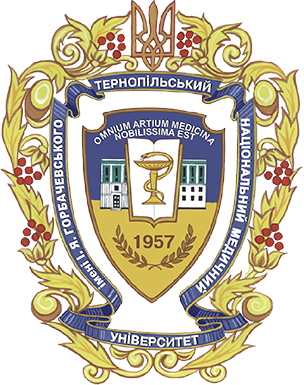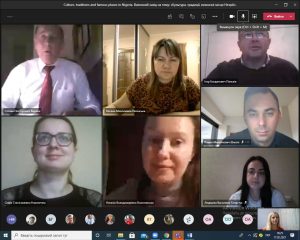“Culture, traditions and places of interest of Nigeria” was held on-line
At the Department of Physiology, Bioethics and Biosafety, an educational event with students of curatorial groups on the “Culture, traditions and places of interest of Nigeria” was held on-line.
The meeting was opened by Professor Vadziuk S.N., the Head of the Department. He noted that such educational events at the department were held not the first time; it is a tradition to study the history of the state, native land, the past, where the students come from. This experience we learn from our parents, grandparents, mentors. Without the information of predecessors, we would never have learned the traditions, customs, culture, behaviour. As a large number of international students of curatorial groups are of Nigerian nationality, we decided to present to the students the peculiar features of culture, traditions and places of interest of Nigeria.
Information about the history, culture, architectural monuments, and famous people of Nigeria was presented by English-speaking students in English and their native language.
The teachers of the department, curators: Professor Vadziuk S.N., Assistant Professor Nakonechna S.S., Associate Professor Ratynska O.M., Assistant Professor Volotovska N.V., Associate Professor Pankiv I.B., Assistant Professor Shmata R.M., Assistant Professor Tatarchuk L.V., Assistant Professor Kashchak T.V.
The academic and teaching staff together with the students listened to an interesting presentation of the student of the group 373 Onifade Oluvaemisi Elizabeth on the “Nigeria – resources, cultural shrines”.
The information about the Olumo rock, a mountain in south-western Nigeria was very interesting.
Majaki Ovieze Favour, a student of the group 373, delivered an interesting presentation about the State of Edo and the Delta: climate and vegetation. It was exciting to learn about the crops that grow in the dry season in Nigeria: corn, okra, millet, cucumber, melon, watermelon. And also about the crops that are grown in the rainy season: cassava, peanuts, yams, potatoes, rice, millet.
Adejole Oluvaferanmi Esther, a student of the group 373 expanded on the city of Lagos in Nigeria, which was the capital of Nigeria until 1991. The audience was interested in the presentations about the historical and geographical location, national symbols, holidays.
Adejole Oluvaferanmi Esther, a student of the group 373 expanded on the city of Lagos in Nigeria, which was the capital of Nigeria until 1991. The audience was interested in the presentations about the historical and geographical location, national symbols, holidays.
Enamhe Emangne Marie Karen, the student of the group 374, delivered a presentation on “Nigeria: population, famous people, national holidays”.
At the end of the event the student of the group 384 Amugo Ogonna Margaret expanded on “Culture of Nigeria”. It was interesting to learn about ethnic groups, such as the Hausa in the north, the Igbo in the southeast, and the Yoruba in the southwest; their national dishes of beans and plantain, pepper soup, tuva na housa of sorghum, millet, rice or corn, etc..
Information by Kashchak T.V., Assistant Professor of the Department of Physiology, Bioethics and Biosafety











